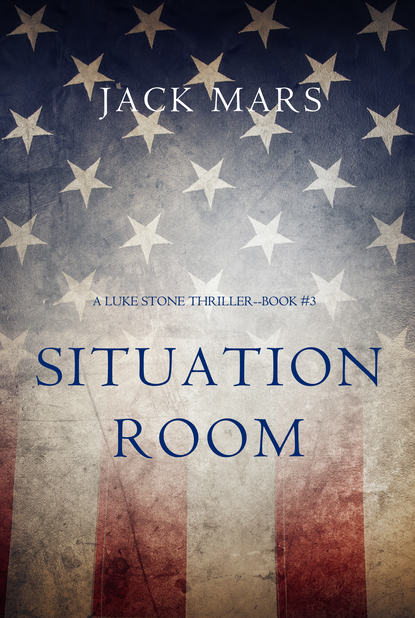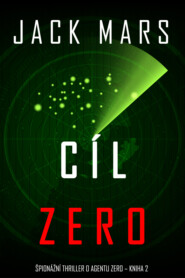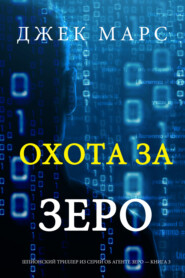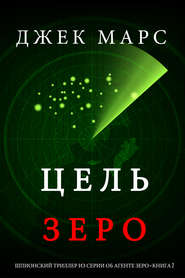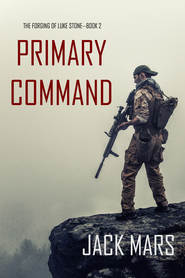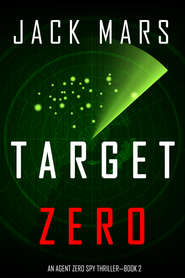По всем вопросам обращайтесь на: info@litportal.ru
(©) 2003-2025.
✖
Situation Room
Настройки чтения
Размер шрифта
Высота строк
Поля
Swann shrugged. “He could be American. He could be Canadian. He has high cheekbones and flat facial features, which could mean he’s Thai. He’s a big guy, which could mean northern Chinese. He could be an American of Asian descent. I didn’t get anything from being in that room with him that indicated any nationality. But I wouldn’t peg him as Chinese just because he has a Chinese passport.”
“Okay, what’s your second guess?” Luke said.
“My second guess is they went low tech so no prying eyes can see what they’re doing. You can’t hack into something that isn’t connected. If Li is not on the internet, no one can read his files. The only way to access them is to come here to this godforsaken warehouse in a crummy industrial district on the outskirts of Atlanta. The only way to find out this warehouse even exists is to torture Li, or in your case, threaten to torture him. And that’s something which never should have happened in the first place, because Li was supposed to kill himself before he was caught. The people who were supposed to find this computer were Li’s handlers, or in a worst-case scenario, Sal would find it when the rent money ran out. Then he would either toss this old computer in the trash, or sell it for ten bucks.”
The computer screen came on and asked for a login code.
Swann gestured at the screen. “And that, right there, would have been enough to stop Sal in his tracks.”
“Can you beat it?” Ed said.
Swann almost smiled. “Are you kidding? These circa 1994 encryptions are a joke. I was breaking these things when I was thirteen years old.”
He typed in a command, and an old black MS-DOS screen appeared in the top left corner. He typed in a few more commands, hesitated for a moment, typed in a few more, and Windows returned, no longer asking for a password.
When the desktop loaded, Swann clicked around for a few moments. It didn’t take long. “There are no files on here,” he said. “No word processing documents, no spreadsheets, no photographs, nothing.”
He glanced at Luke over his shoulder.
“This computer’s been wiped clean. The hard drive is still here, and it functions, but there’s no evidence of anything. I think our friend Mr. Li might have pulled a fast one.”
“Can you get the files back that were deleted?” Luke said.
Swann shrugged. “Maybe, but I can’t do it here. Could be there were never any files to begin with. We’ll have to remove the hard drive and bring it back with us to NSA to know for sure.”
Luke sagged the slightest amount. Generally, he had a lot of confidence in his ability to read people. But maybe Swann was right. Maybe Li had pulled a fast one. His terror seemed real enough, but maybe he had faked it. Why would he do that? He had to know that Luke was coming right back for him. There was nowhere to run.
“What about the CDs?” he said. “Let’s check those.”
Swann picked up the first one, marked A. He held it between two fingers as if it had something contagious on it. “Sure, why not?”
He slid the CD into its slot. The computer suddenly began to rev like an airplane preparing for takeoff. A moment passed, and then a window opened. It was a list of word processing files. The files had names that followed sequential patterns, most often with a word and then a number. There were dozens and dozens of files.
The first word in the list was “air,” and it went from “air1” through “air27.” A later word that seemed interesting was “grid,” which went from “grid1” to “grid9.” In between those two on the list was the word “dam.” It went from “dam1” to “dam39.” Much later, there was “rig1” to “rig19.” Also, “train1” to “train21.”
“Should I start with air?” Swann said.
“Okay.”
Swann pulled up air1. The words at the top served as a title of sorts. John F. Kennedy International Airport, New York City.
“Uh-oh,” Swann said.
There was a brief description of the airport, including opening date, its location by latitude and longitude, the number of flights and passengers per year, major airlines it served, and more. Then there were several pages of photographs of the terminal, a New York City map with the airport indicated, and then several maps of the terminals. Past that, things became technical – long lists of data appeared, a blur of numbers and letters. Swann went quiet as he pored over it.
“Houston, we have a problem,” he said finally.
*
The black SUV raced through city streets, headed for the highway.
Luke was on hold, trying to reach the President. In the background, he could hear both Ed and Swann working their own telephones.
“I’m going to need a team of analysts to dive into this stuff,” Swann said. “That’s right, as soon as I can get it all uploaded. No, it’s all on CD-ROM. I can’t do it right now. I’m in a car. Yes. There’s a base just outside of town here, Naval Air Station Atlanta, and we’ll be there in a little while. I assume somebody will lend me a system with a CD slot. Why do you think he put it on CD? So nobody could hack it, that’s why. It was in a drawer in a locked office in a locked warehouse that nobody knew about.”
Ed was nearly talking over Swann. “I need you to put me through to the FEMA camp in Chattahoochee National Forest,” he said. He paused for a moment, listened to what was said on the other end.
“I promise you, it exists. Try Camp Enduring Freedom, or Camp Nowhere. I was there this morning. There’s a guy named Pete Winn. I don’t know what his title is. Camp director, maybe. Swimming instructor, I don’t know. Yes, I know there’s no listing for the camp. I need this guy Winn anyway. He has a prisoner. He will know the one. We have confirmed information that we received from that prisoner. Yes, I repeat that. The prisoner is now a high-value prisoner, highest possible value. We are en route to that location. We need that prisoner prepped for further interrogation. I want a twenty-four-hour guard on him, and video surveillance. Prisoner is a flight risk and suicide risk.”
Ed paused again. “Lady, just find the camp! Ask your superior for clearance. I’m telling you, I was there.”
Luke listened to dead air. He was a little surprised at himself. They had left the FEMA camp without considering how they would contact it again. Luke had just assumed he could get back in touch through normal channels. It was interesting how quickly the rust built up after two months away. Would he have made that assumption if he were doing this all the time? Probably not.
After another moment, there was a click and the dead air over the phone changed. It became a wide open space, with some chatter in the background.
“Kat Lopez,” came the voice over the line.
“Hi, Kat. It’s Luke Stone. I need to talk to Susan.”
“Hi, Luke. Susan is in a meeting right now. I can take a message for her.”
“I’d like to speak to her directly, if you don’t mind.”
“Luke, I’m her chief-of-staff. I’m empowered to listen for her. You can trust me to take the message correctly and get it to her.”
“Time is of the essence here, Kat.”
Kat’s voice was firm. “So if we stop jousting over whether you’d like to leave a message with me or not, I think we’ll make better use of everyone’s time.”
Luke sighed. This was how it went. They brought you in, they sent you on a mission, and everything had to be done as soon as possible. Then, when you came to them with the intel, they were in meeting. Leave a message and we’ll call you back.
“Okay, Kat, you got a pen?”
“Very funny,” she said. Of course she was a tablet person. Luke had never quite adapted himself to the latest and greatest technology. He still had a tendency to scribble notes down on scraps of paper.
“We interrogated Li Quiangguo this morning. Based on a lead he gave us, we have uncovered a list, and possibly more than one list, of dozens of facilities that are likely targets of terrorist attacks. Our tech guy believes these are probably cyber attacks, like the one that opened the floodgates on the Black Rock Dam. Each target facility has its own document. The documents describe technology in use, network technology specs including data limits, size of backbone, processing speed, also age of the tech they’re using, and its known vulnerabilities.”
“What kind of facilities are these?” she said.
“Airports. Power stations. Entire electricity grids. Oil rigs. Oil refineries. Dams. Bridges. Subway and train systems. You name it, it’s on there.”
“Any timeframe indicated?”
“Yes. The last document in the list was called Zero Hour. We opened it. The date was August eighteenth, two days from now.”
There was silence over the line.
Luke went on. “We are heading back to question Li again. It’ll take us about ninety minutes to get up there. The target lists are on CD. My tech guy, Swann, is going to stay here in Atlanta and oversee uploading of the data so we can get it to analysts at FBI, NSA, and CIA as soon as possible. You might want to consider pulling your National Security people in now, so they’re ready as soon as analysis starts to become available. And if you don’t mind, pull us some strings so that we have the analysts we need. We’re probably going to need a hundred people, today, this afternoon, which means we’ll need cross-agency cooperation.”
“Okay, what’s your second guess?” Luke said.
“My second guess is they went low tech so no prying eyes can see what they’re doing. You can’t hack into something that isn’t connected. If Li is not on the internet, no one can read his files. The only way to access them is to come here to this godforsaken warehouse in a crummy industrial district on the outskirts of Atlanta. The only way to find out this warehouse even exists is to torture Li, or in your case, threaten to torture him. And that’s something which never should have happened in the first place, because Li was supposed to kill himself before he was caught. The people who were supposed to find this computer were Li’s handlers, or in a worst-case scenario, Sal would find it when the rent money ran out. Then he would either toss this old computer in the trash, or sell it for ten bucks.”
The computer screen came on and asked for a login code.
Swann gestured at the screen. “And that, right there, would have been enough to stop Sal in his tracks.”
“Can you beat it?” Ed said.
Swann almost smiled. “Are you kidding? These circa 1994 encryptions are a joke. I was breaking these things when I was thirteen years old.”
He typed in a command, and an old black MS-DOS screen appeared in the top left corner. He typed in a few more commands, hesitated for a moment, typed in a few more, and Windows returned, no longer asking for a password.
When the desktop loaded, Swann clicked around for a few moments. It didn’t take long. “There are no files on here,” he said. “No word processing documents, no spreadsheets, no photographs, nothing.”
He glanced at Luke over his shoulder.
“This computer’s been wiped clean. The hard drive is still here, and it functions, but there’s no evidence of anything. I think our friend Mr. Li might have pulled a fast one.”
“Can you get the files back that were deleted?” Luke said.
Swann shrugged. “Maybe, but I can’t do it here. Could be there were never any files to begin with. We’ll have to remove the hard drive and bring it back with us to NSA to know for sure.”
Luke sagged the slightest amount. Generally, he had a lot of confidence in his ability to read people. But maybe Swann was right. Maybe Li had pulled a fast one. His terror seemed real enough, but maybe he had faked it. Why would he do that? He had to know that Luke was coming right back for him. There was nowhere to run.
“What about the CDs?” he said. “Let’s check those.”
Swann picked up the first one, marked A. He held it between two fingers as if it had something contagious on it. “Sure, why not?”
He slid the CD into its slot. The computer suddenly began to rev like an airplane preparing for takeoff. A moment passed, and then a window opened. It was a list of word processing files. The files had names that followed sequential patterns, most often with a word and then a number. There were dozens and dozens of files.
The first word in the list was “air,” and it went from “air1” through “air27.” A later word that seemed interesting was “grid,” which went from “grid1” to “grid9.” In between those two on the list was the word “dam.” It went from “dam1” to “dam39.” Much later, there was “rig1” to “rig19.” Also, “train1” to “train21.”
“Should I start with air?” Swann said.
“Okay.”
Swann pulled up air1. The words at the top served as a title of sorts. John F. Kennedy International Airport, New York City.
“Uh-oh,” Swann said.
There was a brief description of the airport, including opening date, its location by latitude and longitude, the number of flights and passengers per year, major airlines it served, and more. Then there were several pages of photographs of the terminal, a New York City map with the airport indicated, and then several maps of the terminals. Past that, things became technical – long lists of data appeared, a blur of numbers and letters. Swann went quiet as he pored over it.
“Houston, we have a problem,” he said finally.
*
The black SUV raced through city streets, headed for the highway.
Luke was on hold, trying to reach the President. In the background, he could hear both Ed and Swann working their own telephones.
“I’m going to need a team of analysts to dive into this stuff,” Swann said. “That’s right, as soon as I can get it all uploaded. No, it’s all on CD-ROM. I can’t do it right now. I’m in a car. Yes. There’s a base just outside of town here, Naval Air Station Atlanta, and we’ll be there in a little while. I assume somebody will lend me a system with a CD slot. Why do you think he put it on CD? So nobody could hack it, that’s why. It was in a drawer in a locked office in a locked warehouse that nobody knew about.”
Ed was nearly talking over Swann. “I need you to put me through to the FEMA camp in Chattahoochee National Forest,” he said. He paused for a moment, listened to what was said on the other end.
“I promise you, it exists. Try Camp Enduring Freedom, or Camp Nowhere. I was there this morning. There’s a guy named Pete Winn. I don’t know what his title is. Camp director, maybe. Swimming instructor, I don’t know. Yes, I know there’s no listing for the camp. I need this guy Winn anyway. He has a prisoner. He will know the one. We have confirmed information that we received from that prisoner. Yes, I repeat that. The prisoner is now a high-value prisoner, highest possible value. We are en route to that location. We need that prisoner prepped for further interrogation. I want a twenty-four-hour guard on him, and video surveillance. Prisoner is a flight risk and suicide risk.”
Ed paused again. “Lady, just find the camp! Ask your superior for clearance. I’m telling you, I was there.”
Luke listened to dead air. He was a little surprised at himself. They had left the FEMA camp without considering how they would contact it again. Luke had just assumed he could get back in touch through normal channels. It was interesting how quickly the rust built up after two months away. Would he have made that assumption if he were doing this all the time? Probably not.
After another moment, there was a click and the dead air over the phone changed. It became a wide open space, with some chatter in the background.
“Kat Lopez,” came the voice over the line.
“Hi, Kat. It’s Luke Stone. I need to talk to Susan.”
“Hi, Luke. Susan is in a meeting right now. I can take a message for her.”
“I’d like to speak to her directly, if you don’t mind.”
“Luke, I’m her chief-of-staff. I’m empowered to listen for her. You can trust me to take the message correctly and get it to her.”
“Time is of the essence here, Kat.”
Kat’s voice was firm. “So if we stop jousting over whether you’d like to leave a message with me or not, I think we’ll make better use of everyone’s time.”
Luke sighed. This was how it went. They brought you in, they sent you on a mission, and everything had to be done as soon as possible. Then, when you came to them with the intel, they were in meeting. Leave a message and we’ll call you back.
“Okay, Kat, you got a pen?”
“Very funny,” she said. Of course she was a tablet person. Luke had never quite adapted himself to the latest and greatest technology. He still had a tendency to scribble notes down on scraps of paper.
“We interrogated Li Quiangguo this morning. Based on a lead he gave us, we have uncovered a list, and possibly more than one list, of dozens of facilities that are likely targets of terrorist attacks. Our tech guy believes these are probably cyber attacks, like the one that opened the floodgates on the Black Rock Dam. Each target facility has its own document. The documents describe technology in use, network technology specs including data limits, size of backbone, processing speed, also age of the tech they’re using, and its known vulnerabilities.”
“What kind of facilities are these?” she said.
“Airports. Power stations. Entire electricity grids. Oil rigs. Oil refineries. Dams. Bridges. Subway and train systems. You name it, it’s on there.”
“Any timeframe indicated?”
“Yes. The last document in the list was called Zero Hour. We opened it. The date was August eighteenth, two days from now.”
There was silence over the line.
Luke went on. “We are heading back to question Li again. It’ll take us about ninety minutes to get up there. The target lists are on CD. My tech guy, Swann, is going to stay here in Atlanta and oversee uploading of the data so we can get it to analysts at FBI, NSA, and CIA as soon as possible. You might want to consider pulling your National Security people in now, so they’re ready as soon as analysis starts to become available. And if you don’t mind, pull us some strings so that we have the analysts we need. We’re probably going to need a hundred people, today, this afternoon, which means we’ll need cross-agency cooperation.”





